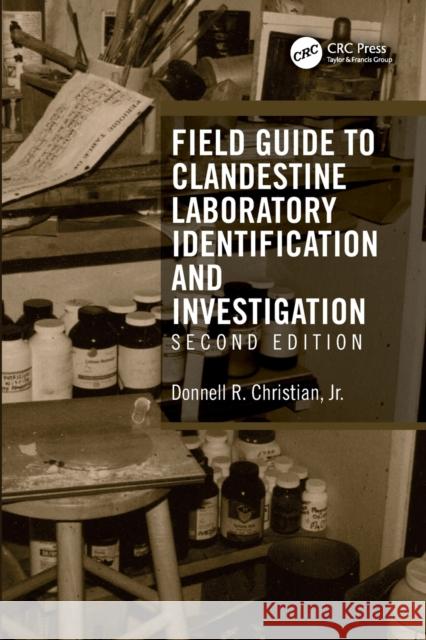Field Guide to Clandestine Laboratory Identification and Investigation » książka
Field Guide to Clandestine Laboratory Identification and Investigation
ISBN-13: 9781032370293 / Angielski / Miękka / 2023 / 104 str.
Field Guide to Clandestine Laboratory Identification and Investigation
ISBN-13: 9781032370293 / Angielski / Miękka / 2023 / 104 str.
(netto: 236,87 VAT: 5%)
Najniższa cena z 30 dni: 221,59
ok. 16-18 dni roboczych.
Darmowa dostawa!
Provides tools to law enforcement, the fire services, and other emergency responders to recognize the tools used in clandestine laboratories to manufacture contraband drugs and explosive. An indispensible resource to help responders and investigators combat drug abuse and terrorism.
Clandestine labs that manufacture drugs or explosives may be encountered virtually anywhere. They can range from complex operations employing scientific equipment and exotic chemicals or simply kitchen utensils and chemicals purchased at a local grocery or hardware store. Regardless of their form, the key to detecting clandestine labs is the ability to recognize the combinations of equipment and chemicals that constitute the lab in the first place. Te first line of defense against the manufacturers—who supply the drug trade and terrorists with their tools of destruction—is law enforcement, the fire services, and other emergency responders.
The Field Guide to Clandestine Laboratory Identification and Investigation, Second Edition provides the information necessary to recognize operations that produce these deadly brews. As with the prior edition, the book has sections covering the chemicals and equipment commonly used in the manufacture of drugs and explosives. They are grouped in a manner that allows the emergency responder to quickly identify common combinations of equipment and chemicals that could potentially be used to manufacture drugs or explosives. Since many clandestine manufacturing operations use commonly available materials that have legitimate uses, the author outlines how to quickly assessing and recognizing key indicators associated with clandestine laboratory operations.
Sections within the book address information concerning both the hazards associated with those chemicals involved and the personal protective equipment needed to abate the hazards. In addition, documentation requirements, field-testing, and sampling procedures are detailed for use once the operation has been seized and secured. Reproducible worksheets are provided to either be used as, or supplement, the on-scene investigators’ field notes and assist in providing a standardized manner to objectively record of the information about the crime scene.
The ability to identify the tools used to manufacture contraband drugs and explosives is a key element in the battle against drug abuse and terrorism, making the Field Guide to Clandestine Laboratory Identification and Investigation, Second Edition an indispensible resource to responders and investigators alike.











